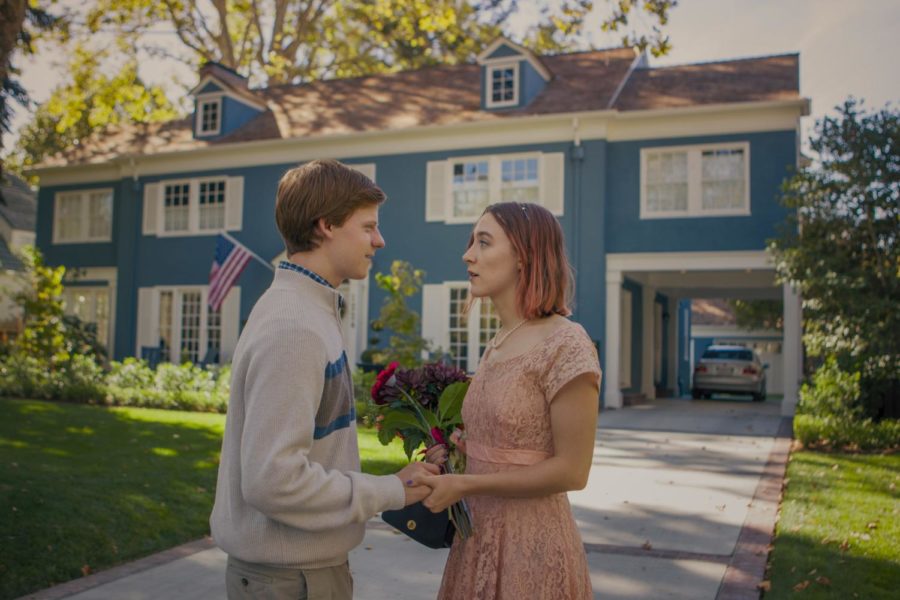Ladybird: A Movie That Grows With You
Ladybird grows with the spectator as they grow with her.
In all of Earth’s 4.6 billion years, it’s pure serendipity that we happen to be alive to witness some of the planet’s best ages. Some are glad they exist at the same time as rapidly increasing technological development; others rejoice at living to experience the historical events unfolding before us on the daily. Personally, my greatest joy is that the stars aligned perfectly for Greta Gerwig’s Ladybird to release as I had just entered teenhood.
It didn’t cement itself as my favorite film the first time I watched it. Although I loved the colors and the whirlwind plot, Legally Blonde remained my staunch favorite. I watched it again as a sophomore in high school – it was like seeing an entirely different movie. I could relate to Ladybird as a sometimes awkward, emotional high schooler.
The acidity and selfishness in her character I once saw as infuriating now felt honest and realistic to a real teenager. I could also now see the film’s themes that extended beyond surface level – Gerwig used her characters, shots, and dialogue to promote the clear, standout message of attention as an act of love. We see it in the way Ladybird writes about her home city of Sacramento with prolific detail despite claiming to hate it; we see it when Ladybird breaks up with her boyfriend Kyle for not noticing her distress.
The film is also set apart from other coming-of-age cliches through its structure – or lack thereof. Ladybird is a set of thoughtfully crafted vignettes of the protagonist’s senior year, ranging from the mundane to the joyful to the tragic.
A scene about the local reverend working through grief with Ladybird’s mother (a nurse) is directly followed by an impassioned rant from our protagonist at the possibility of having to attend UC Davis. The emotional whiplash doesn’t feel corny, nor does it downplay the tone of each individual scene. Our lives are messy, with no rising or diminishing action as other movies might suggest; Ladybird does a wonderful job of getting into the mind of a teenager and turning it out for the world to reminisce upon.
I most recently watched the film again during my senior year, finally at the same age as Ladybird herself. While I thought this would lead to a better understanding of her character, I was surprised to discover a new empathy for the character she interacts with most – her mother, Marion. Ladybird and her mom have a contentious relationship throughout the movie; where Ladybird is self-serving and obstinate, Marion is irritable and blunt. I once thought of Marion as too harsh on her daughter and overly emotional, but I think as we grow older we start to see our parents as not just guardians but people. I could understand the care she had for Ladybird through the attention she gave her at the same time I grew more empathetic towards my own parents in our last year together before I go to college.
Every rewatch of Greta Gerwing’s masterpiece offers an opportunity to learn and appreciate something entirely novel – Ladybird is a timeless film I can’t wait to watch again.
Ria Raniwala is a senior at Wilton High School and is a Staff Writer for The Forum.

